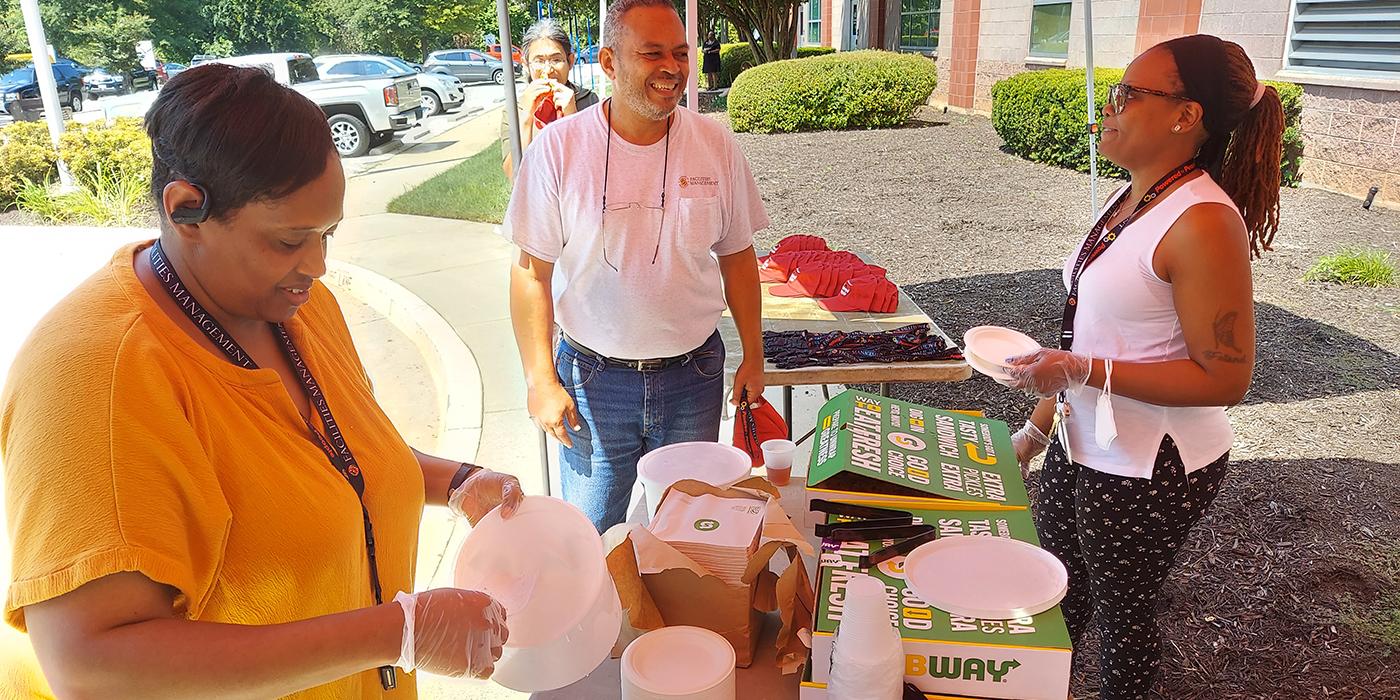
UMD has a history of composting that goes back to 2007. Those efforts have been greatly expanded in the years since and are about to expand again. The Maryland Legislature recently passed new requirements for the collection of compostable materials every time food is served on the UMD campus. Whether a student group meeting, a small staff meeting or a large event, composting all remaining food scraps is now required.
House Bill 264/Senate Bill 483, entitled “Solid Waste Management Organics Recycling and Waste Diversion – Food Residuals,” will be enforced this fall on the UMD campus.
There are four key steps you must now follow when you serve food on campus.
- Request bins from FM CRC by completing a work request form or by email at fmcrc@umd.edu.
- Analyze your disposables. Determine which can be composted, recycled or must go to the landfill as trash.
- Educate your guests. Communicate to your attendees about how to properly sort their waste into recyclables, compostables or trash.
- Monitor your collections. The compost facility has strict acceptance rules and collections must be monitored to avoid contamination.
Compostable Items
- Food Scraps
- Napkins and paper towels
- Paper food containers
- Plants/flowers
- Other items marked “compostable”
Do not compost
- Plastic tableware
- Straws
- Beverage lids
- Metal cans
- Plastic bottles.
The new Maryland law follows the traditional food recovery hierarchy - prevent waste before it occurs, feed people, feed animals, and recycle non-edible food residuals. The focus is to reduce the amount of greenhouse gasses emitted from landfills; provide edible food to people at a free or lower cost; and improve Maryland's soils.
If you have questions, reach out to recycle@umd.edu.
